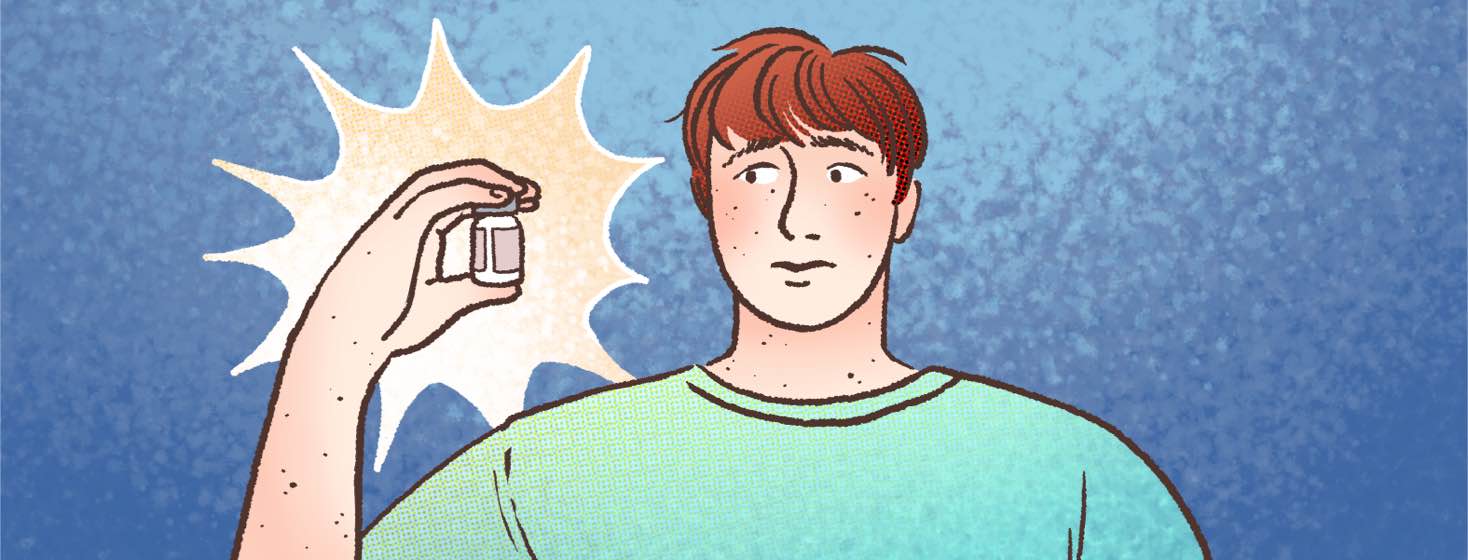Redheads, Skin Cancer Surgery, and Anesthesia
When I had a consult appointment with the surgeon who would be doing a Mohs surgery on my face, he said something that I found interesting.
Not the best time to wake up
We were discussing my history of skin cancer and my prior surgeries. He asked how I did with anesthesia, and I told him that I didn’t have any issues with it as far as negative side effects. I mentioned that during a skin cancer surgery years ago, I woke up mid-surgery even though my doctor had told me the anesthesia would make me sleep through it.
He jumped a bit
I remember opening my eyes and seeing my surgeon sewing up my face. I said “I thought you said I’d be asleep!” and he jumped a bit. He responded that I had been asleep, and I decided it was a good idea to go back to sleep and not startle him while he was suturing my incisions.
General anesthesia for Mohs surgery
During my next surgery with him, when I had numerous basal cell carcinoma and a squamous cell carcinoma area to be removed, he told me he was going to have me put under general anesthesia for that surgery since I had a tendency to wake up during surgery. I had 23 places removed during that next surgery, so I was glad to be put under.
Red hair and anesthesia
The Mohs surgeon then said something that I had never heard before; he said he noticed that I have a red tint to my hair and that people with red hair metabolize anesthesia faster and need more anesthesia than others. He said that goes for not just local anesthesia (like lidocaine), but also general anesthesia.
Born a redhead
I told him I was born with red hair, and he said he would note in my chart that for my upcoming surgery, I would most likely need additional anesthesia.
Why had no one told me?
This had me wondering, why had no other doctor told me this throughout the years? Not just with numerous skin cancer surgeries, but I had a very painful C-section when my youngest daughter was born. I kept telling my doctor that I could feel it, but the anesthesiologist said she had given me plenty of anesthesia. It took me becoming almost hysterical as I could feel the cuts before my doctor told the anesthesiologist to give me more. I have a high pain tolerance, but that surgery was one I won’t forget.
Doing my own research
I did some online research to see what I could find relating to redheads and anesthesia. I read numerous articles, with many of them indicating that anesthesiologists and operating room doctors have long reported that people with red hair appeared to need more anesthesia than people without red hair. I also found an informative video of “Do Redheads Require More Anesthesia” by Dr. Kristina Braly, an anesthesiology specialist in Houston Texas.
Turning to the studies
According to Dr. Shalini Shah, a pain management specialist at UCI Health in California, redheads are harder to sedate. She said, “Classic anesthesia literature has documented that redheads require more anesthesia.” Dr. Shah stated that she raises the topic of additional anesthesia with redheaded patients, and monitors the patient carefully to make certain they are properly anesthetized. UCI Health reports that redheads need about 20% more anesthesia to be sedated and also need more local topical anesthetics, like Novocain or lidocaine.
Looks can be deceiving
That’s easy enough if someone is still a redhead, but in my case, at around the age of 3, my hair changed from red to strawberry blonde then to more of a darker blonde over the years. Looking at me, it’s not easily apparent that I was born with red hair, which may be why I was under-anesthetized during some surgeries.
Now I know
I’m now going to make a point to mention prior to any surgery that I was born with red hair and may need additional anesthesia or local anesthetic, which is something Dr. Shah recommends. She said that the reactions to anesthesia redheads have aren’t as widely known among doctors in other specialties, so people with red hair need to advocate for themselves when it comes to pain management.
My own best advocate is me
This entire experience proved to me, once again, that we are truly our own best advocates and need to speak up for ourselves, not just in our skin cancer treatments, but with any medical treatment.
Community Poll
How often to do you speak to family and friends about skin cancer?

Join the conversation